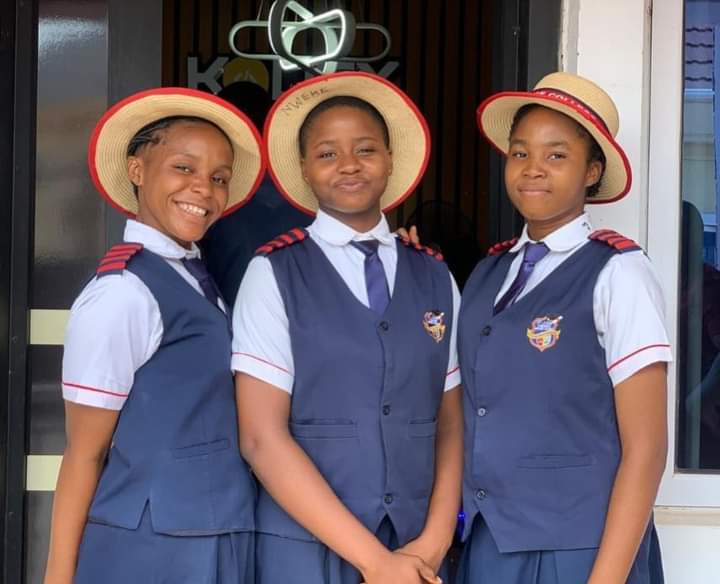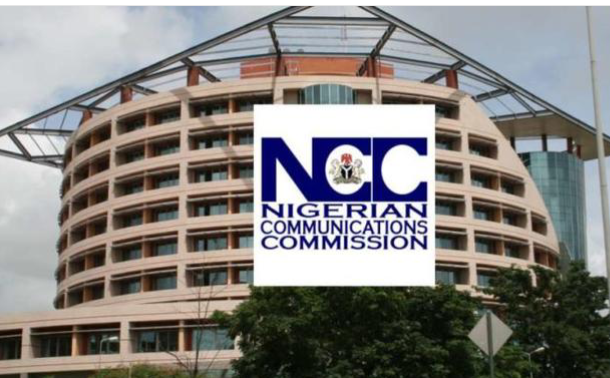Tech
NCC Sets Pace In FG’s Indigenous Tech Development Policy


The Nigerian Communications Commission (NCC) has given concrete expression to the Federal Government’s drive to promote indigenous innovative technologies in Nigeria’s telecommunication sector.
The NCC demonstrated this by organising the maiden prototype and research exposition aimed at showcasing no fewer than 10 prototypes, arising of from its sponsored Telecommunications-Based Research Innovation Projects in the Nigerian universities.
At the event, which took place at the Commission’s Communications and Digital Economy Complex, Head Office Annex in Mbora District, Abuja, from 21–22, February 2022, the Commission selected 10 prototypes for exhibition as outputs of its telecom research project during the two-day event.
The top 10 prototypes include: Multiple operators’ enabled SIM, GSM communication-based walking cane robot, Powerline communications module, Home-grown electrical power charger, Low-cost GSM telephone system, Wireless power transfer device, Vital sign monitor, Plastic optical fibre cable, Wearable E-band tracker, and a Software-based nomadic base station.
The Commission is implementing the research and prototype exposition as a way of encouraging the commercializing of the prototypes, as an influential platform for universities, professionals and industry experts to come together, share information and build long-lasting business relationships.
Speaking at the event, Minister of Communications and Digital Economy, Prof. Isa Ali Ibrahim Pantami, stated that, through the NCC’s telecoms-based research and prototype exposition, “the indigenous technological capabilities of Nigerians will be fully appreciated, harnessed, and utilised towards stimulating the overall productivity and sustainability of the telecommunications industry.”
Pantami emphasised that research is considered a necessary condition for the technological development of any nation and also regarded as the backbone of the communications industry, because it is the building block for the future development of advanced telecommunications products and services. He tasked the mobile network operators (MNOs) to work with NCC to support indigenous technology development to solve national challenges in future.
The Minister commended the Commission’s Board and Management for facilitating the delivery of the lofty policy targets contained in the National Policy for the Promotion of Indigenous Content (NPPIC) 2021. He also thanked the recipients of the Commission’s grants for the display of already developed prototypes for the knowledge of the industry stakeholders.
Speaking earlier, Chairman, NCC, Board of Commissioners, Prof. Adeolu Akande, declared that the Commission will continue to provide the enabling environment to bridge the gap in the significant tripartite relationship among the academia, industry, and the government. He encouraged participants to support NCC’s initiative to succeed, as businesses will emerge, and sustainable jobs will be available for our young graduates on account of this new developments.
Also in his address, the Executive Vice Chairman and Chief Executive of NCC, Prof .Umar Garba Danbatta, reinforced the Commission’s commitment to discharging its role as an active regulator to drive the indigenous content development component of the nation’s telecoms sector. The EVC reiterated the significance of building the indigenous technological capacities of Nigerians through partnerships with relevant stakeholders.
“The Commission has awarded grants to successful academic institutions to develop Working Prototype and Telecommunications-led Products capable of addressing industry needs and providing overall sustainability, fully-developed and ready-for-the-first phase of market entry”, Danbatta stated.
The EVC asserted that “it is important to have a commercialisation strategy to transit from rudimentary research into the market to address the local challenges and reduce the over-dependence on imported innovations and technologies with the attendant drain on the nations scarce foreign exchange.. This is what this programme hopes to achieve to maximize the full potential of academia in contributing to the steady growth of the telecoms industry in Nigeria”.
Tech
Anambra School Emerges Winner In National Girls In ICT Competition With Groundbreaking VR Technology


St. John Vianney Science College, Igbariam, used their virtual reality project to conquer the National Girls in ICT Competition 2024, claiming the national championship title yesterday!
The National Girls in ICT Competition, organized by the Federal Ministry of Communication, Innovation and Digital Economy, is a technology innovation competition for all girls in secondary schools across Nigeria.
Their innovative project, M-Tag VR, allows users to explore iconic landmarks like Zuma Rock and learn about fascinating cultural aspects of Nigerian tribes. The girls, Immaculate Ebube Ikegwuonu, Camilla Anyadike, and Nweke-Nonso Oluchi, mentored by their coach, John Onuigbo, triumphed over teams from all 36 states.
The girls’ talent shone brightly throughout the competition. They started at the state level where they aced the Anambra state competition, then proceeded to conquer the Southeastern regional championship, defeating teams from Ebonyi, Imo, Abia, and Enugu, to make it to the national finals.
Rivers and Lagos states secured the second and third-place positions, respectively.
Tech
Google To Delete Billions Of Browser Records To Settle ‘Incognito’ Lawsuit


CNN reported that Google will delete billions of data records as part of a settlement for a lawsuit that accused the tech giant of improperly tracking the web-browsing habits of users who thought they were browsing the internet privately.
The suit was originally filed in 2020 and accused Google of misrepresenting the kind of data it collects from users who browsed the internet via “Incognito” private browsing mode in Chrome. Google agreed to settle the suit late last year, but the terms of the settlement were first disclosed in a filing on Monday.
As part of the settlement, Google must delete “billions of data records” that reflect the private browsing activities of users in the class action suit, according to court documents filed Monday in San Francisco federal court.
Google will also update its disclosure to inform users about what data it collects each time a user initiates a private browsing session. Google has already started implementing these changes.
For the next five years, Google will also let private browsing users block third-party cookies as part of the settlement. Google also will no longer track people’s choices to browse the internet privately.
Tech
NIN-SIM Linkage: NCC Directs Telecommunication Operators To Bar Non-Compliant Subscribers


The Nigerian Communications Commission (NCC) has confirmed that it would not be reviewing its deadline to bar owners of more than four SIM cards whose SIM registration data failed to match their National Identity Number (NIN) data.
A source within the Commission explained that the Commission’s position was hinged on its objective to clean the country’s SIM ownership database, and ensure that criminals could not take advantage of having multiple unlinked SIMs to carry out their nefarious activities.
“We are not standing back on our decision. March 29th is sacrosanct. Our resolve is hinged on the need to close in on the chaos of untoward ownership of multiple SIM cards with unverified NIN details. We have instances where a single individual has over 10,000 lines linked to his NIN. In some cases, we have seen a single person with 1,000 lines, some 3,000 plus lines. What are they doing with these lines?
“From our interim findings, the owners of these lines did not purchase them for decent purposes or to undertake legitimate activities.
“We have given them enough time to make the decision of which of their lines they want to keep, and discard the others. They did not. All lines in this category with unverified NINs will be barred. They will be then expected to go to their operators and decide which of the lines they want to keep, as well as submit correct NIN details.
“Some people would say they want to use it for car trackers, or for IoTs, but provision has been made for these services already. They are not under the ‘Max-4 Rule.’
“Across the world, no country allows you to have 1,000 SIM cards to make calls or texts.”
The Max-4 Rule announced by the Federal Government in April 2021 provides that telecom subscribers cannot have more than four lines per mobile network operator.
The NCC has also provided Mobile Network Operators (MNOs) an extension till July 31st 2024 within which they are expected to verify all NINs submitted by subscribers with four (4) or less SIMs, as well as bar those whose NIN fail verification with NIMC.
An authoritative source within the Commission who is familiar with the matter stated that the Commission’s management arrived at the decision at a crucial meeting it held today to review requests from the major Mobile Network Operators requesting for extension for the verification of NINs submitted.
The source also stated that the Commission is mulling the idea to approve an online application solution for MNOs where their subscribers whose NIN verification failed due to biometric mismatch can update their records on the app, while existing subscribers can register additional lines.
-



 Entertainment4 days ago
Entertainment4 days agoWhy I’m Not Ready For Kids – Singer Burna Boy Reveals
-



 Entertainment5 days ago
Entertainment5 days agoMen Of The Lagos State Police Command Have Arrested Singer Portable
-



 News4 days ago
News4 days agoThe Peruvian Government Has Officially Classified Transgender, Nonbinary And Intersex People As “Mentally ill”
-



 GROpinion3 days ago
GROpinion3 days agoExposing the Malicious Sabotage of MoMo PSB Project in Enugu Ezike






